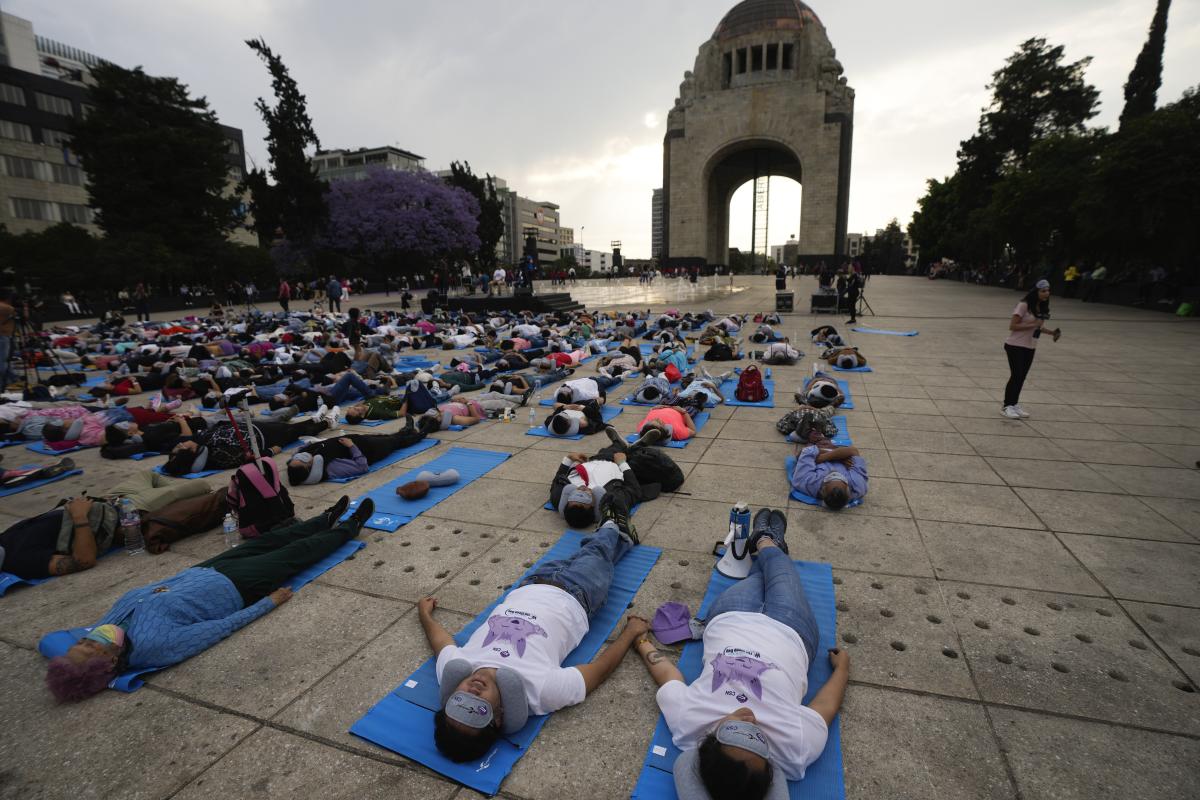Jan. 10—Correction appended
About 36,000 children across New Mexico — 8% of all kids in the state — are raised by their grandparents or other relatives rather than their parents, a new study found.
It’s a family dynamic — uniquely common in the state — that brings both joy and strain to households. Grandparents suddenly become parents again and must navigate the legal complexities of guardianship, adjust to a different lifestyle and financially support a child, often while living on a fixed income.
In the past decade, the phenomenon of grandparents raising their grandchildren has been the subject of studies and task forces, advisory councils and proposed legislation.
Despite attention to the issue, it’s becoming increasingly common in New Mexico while declining elsewhere.
A new report set for release Wednesday by the LANL Foundation found the number of children in New Mexico raised by grandparents or other family members increased 20% from 2017 to 2023, or about 6,000 kids, even as numbers decreased nationwide.
Researchers, who examined census data, framed the upcoming 2024 legislative session as the time to do something about the growing number of kids in kinship care — those raised by aunts and uncles, older siblings, grandparents or even great-grandparents. They recommend policy changes to provide additional services to kinship care families and ensure easier access to services.
While previous attempts to improve services for children in kinship care largely have failed in past legislative sessions, Gov. Michelle Lujan Grisham‘s budget proposal for fiscal year 2025 — which would set aside large sums of money for grandparents raising grandchildren and other services for seniors — indicates this might be the year for change.
“As we’re going into this legislative session, I can’t think of a better use of dedicating a portion of our increased state revenues to supporting these families,” said Catherine Dry, one of the report’s authors and an independent consultant for the LANL Foundation.
She was referring to record-high projected recurring state revenues of nearly $13 billion, including about $3.5 billion in so-called new money, largely from oil and gas operations. The governor and Legislative Finance Committee released separate spending plans of more than $10 billion last week for the next fiscal year.
One caveat of the LANL Foundation’s study: It likely undercounts the number of children in the state who are raised by family members other than parents.
Dry said the true number is probably higher because formal data collection processes — which gather information provided by child welfare agencies and self-reported by households — may not capture the informal agreements among family members that result in a close relative caring for a child.
Still, the report tells a clear story, Dry said. “This is an issue of critical importance in New Mexico in a unique way.”
The LANL Foundation report recommends policy changes with a goal of knitting together a network of services for kinship care families, said Kersti Tyson, director of research and evaluation at the foundation and an author of the report.
First, the report recommends improving outreach and engagement to kinship guardians and appropriations of funding to help families access a range of resources, from legal aid to health care, housing and food aid.
One crucial change it suggests: Shifting services that connect kinship families with resources away from the long-troubled state Children, Youth and Families Department. This might encourage more families to take advantage the help, the report says.
In addition to the child welfare agency’s ongoing staffing woes and lackluster performance when it comes to protecting kids from repeat maltreatment, many grandparents raising grandchildren avoid contacting CYFD due to fear and stigmas, Dry said.
She believes families might be more amenable to accessing services through the state’s Aging and Long-Term Services Department or Human Services Department.
“These grandparents touch lots of agencies, and it can be a bit of a maze navigating those agencies,” Dry said. “But the notion is that maybe Aging and Long-Term Services is a more welcoming door through which grandparents and kin can enter the system.”
The report also recommends legislative appropriations to provide families with legal assistance and monthly stipends, similar to those provided to foster families.
“Now, people are just at the place of: What we need to move into is action, not pulling together another study group,” Tyson said. “I think that there is consensus across that, both legislatively and in the executive branch.”
Along with proposing big increases for education and public safety, Lujan Grisham included a $17.2 million line item in her proposed executive budget to provide incentives to grandparents and other relatives raising children, one of several recommendations intended to bolster child well-being.
The governor’s spending plan includes other appropriations that could assist kinship families, such as $20.8 million to increase federal Supplemental Nutrition Assistance Program benefits from $25 per month to $125 per month for elderly and disabled people — a category that would cover a lot of grandparents.
It’s cause for hope, Tyson said.
“We were excited to see that this is in the governor’s budget, and it’s on the radar of our executive branch,” she said. “I think that, through the different levels of advocacy that have happened over the different years, it’s definitely on legislators’ minds as well.”
Correction: This story has been amended to reflect the following correction. A previous version of this story included an incorrect spelling of a researcher’s last name. The correct spelling is Catherine Dry.
Signup bonus from





